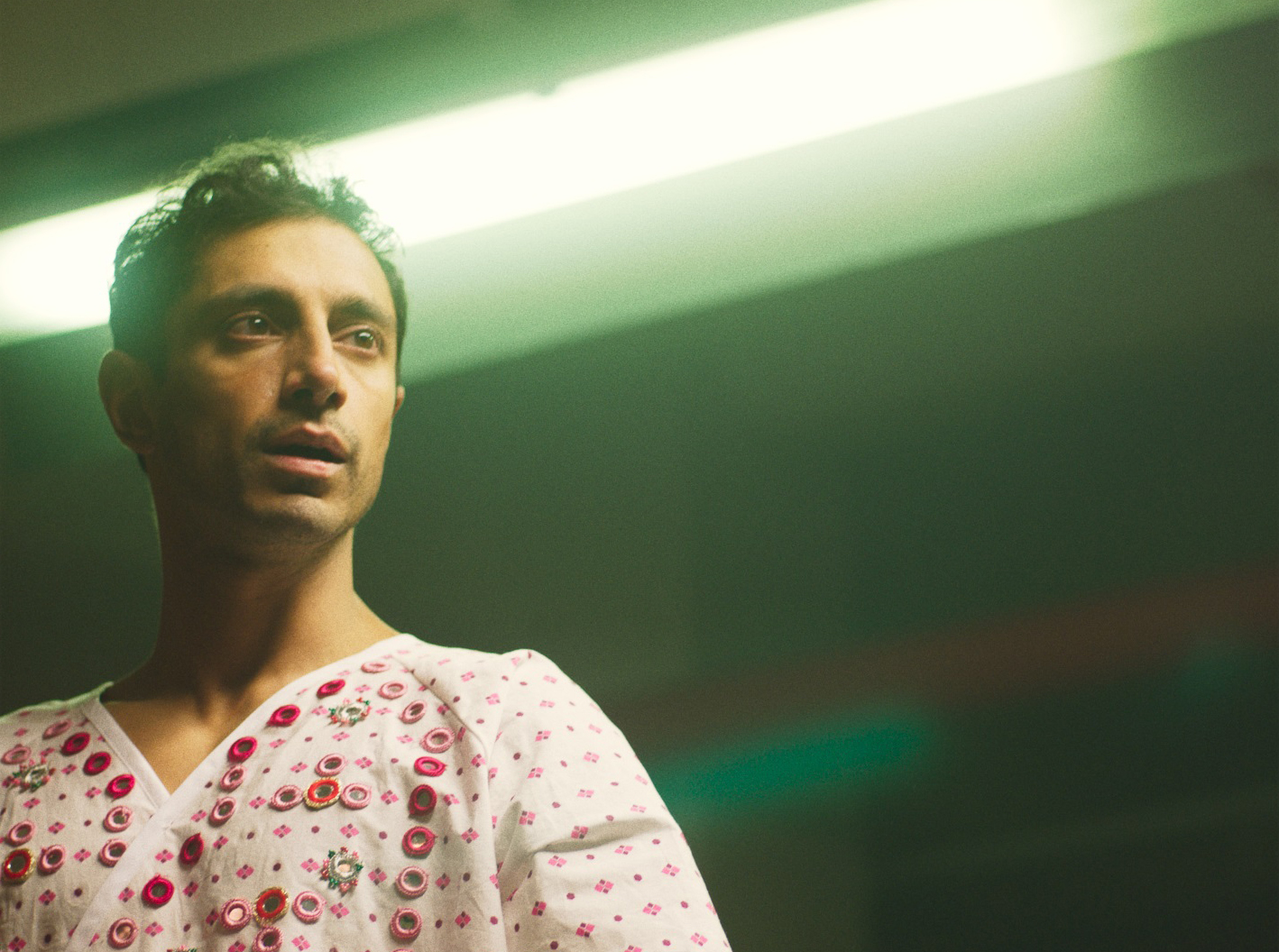In his roles as either a Silicon Valley super-villain (Venom) or Hannah Horvath’s baby daddy (Girls), Riz Ahmed has had to do the same as countless other Hollywood actors: conceal his British roots by adopting an American accent. Yet this is to ignore a further aspect of his identity, that of a Pakistani descendant. As an actor who’s had to deal with one layer of assimilation upon another as he’s become more famous, he feels like one of the few thespians who could use a semi-autobiographical passion project as something illuminating rather than vain.
As co-writer and star of Mogul Mowgli, Ahmed plays Zed, a Pakistani-British rapper who seems partly based off the beginnings of his own extremely successful hip-hop career. While making a name for himself with distinctly political rap, Zed gets a reality call when reminded by an ex-girlfriend that—for someone who constantly talks about his personal history—he never actually sees his family. Thus he decides to make time for a trip back to London before a pivotal tour that could turn him into an international star.
The trauma of assimilation, seen through spilling his guts via his art, extends to the members of his family still in London, who squabble over western-sounding names for their children. Still haunted by memories of a childhood train ride to England, as well as his father’s attempt to run a successful restaurant (amongst other failed business ventures), it won’t be something he recovers from soon. But even more strife hits when Zed is hospitalized with a degenerative condition right before his tour, leaving him trapped in London—his life falling apart as his body betrays itself and an identity crisis worsens. Experimental treatment could save him, but also leave him infertile and cut off his bloodline.
Though Mogul Mowgli‘s heart is in the right place, this pain feels a little too conceptual. Told through clumsy surrealism and overall lack of imagination, it’s unfortunately a rather inert object that seems to simply be repeating the points of its strong political message over and over again. If anything, dreams and flashbacks journeying into Zed’s head signal a chamber drama that’s a little too insecure. One of the film’s highlights—RPG (Nabhaan Rizwan), Zed’s simultaneous protege and nemesis who serves as a hilarious parody of hacky internet rappers—hints at something with more bite, and frankly more specificity than yet another belabored cut to Zed’s childhood train ride.
While commendable for having little-to-zero white faces to “universalize” the story, or even make it too directly about race relations—other than a dream sequence involving a rap battle where Zed’s accused of cultural appropriation by a Black rapper—Bassam Tariq’s narrative debt feels like a missed opportunity overall. Even the square aspect ratio, initially a curious formal choice, leads to nothing interesting in the realm of composition other than cliché close-ups of characters leaning their heads. For something that deals with assimilation, disability, and art in one fell swoop, it’s disappointing that the experience of watching Mogul Mowgli seems no deeper than reading a plot synopsis.
Mogul Mowgli opens in theaters on September 3.

